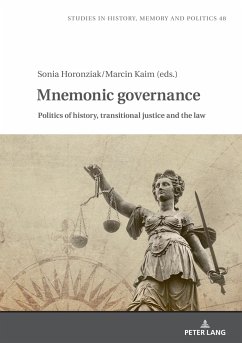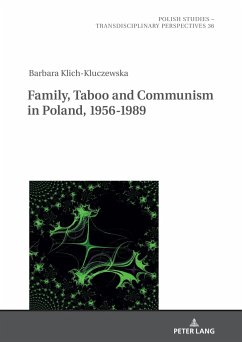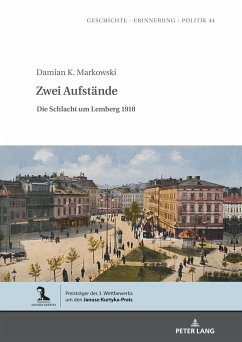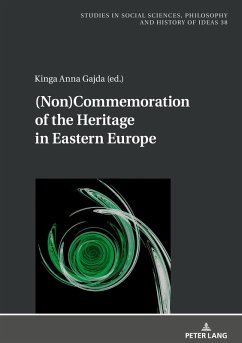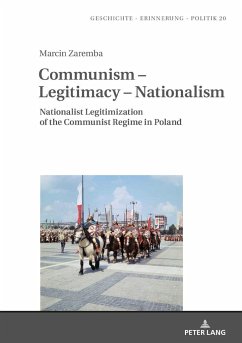
Musealisation of Communism in Poland and East Central Europe
Versandkostenfrei!
Versandfertig in 6-10 Tagen
59,95 €
inkl. MwSt.

PAYBACK Punkte
0 °P sammeln!
The monograph is the result of research conducted between 2014 and 2018 in historical museums in Central and Eastern Europe. The main goal of the book is to verify the thesis about the existence of supranational collective memory in societies affected by the shared experience of totalitarianism.The analysis of the extensive research material allowed the author to distinguish social practices and types of exhibitions. Historical policies conducted by individual states exhibit features in common, their goal being to accustom people to the difficult past, to shape the positive images of the count...
The monograph is the result of research conducted between 2014 and 2018 in historical museums in Central and Eastern Europe. The main goal of the book is to verify the thesis about the existence of supranational collective memory in societies affected by the shared experience of totalitarianism.
The analysis of the extensive research material allowed the author to distinguish social practices and types of exhibitions. Historical policies conducted by individual states exhibit features in common, their goal being to accustom people to the difficult past, to shape the positive images of the countries and to create the cultural founding myths of the post-communist states. Historical museum exhibitions become the executors of these ideas by introducing official interpretations of the communist period.
The analysis of the extensive research material allowed the author to distinguish social practices and types of exhibitions. Historical policies conducted by individual states exhibit features in common, their goal being to accustom people to the difficult past, to shape the positive images of the countries and to create the cultural founding myths of the post-communist states. Historical museum exhibitions become the executors of these ideas by introducing official interpretations of the communist period.





